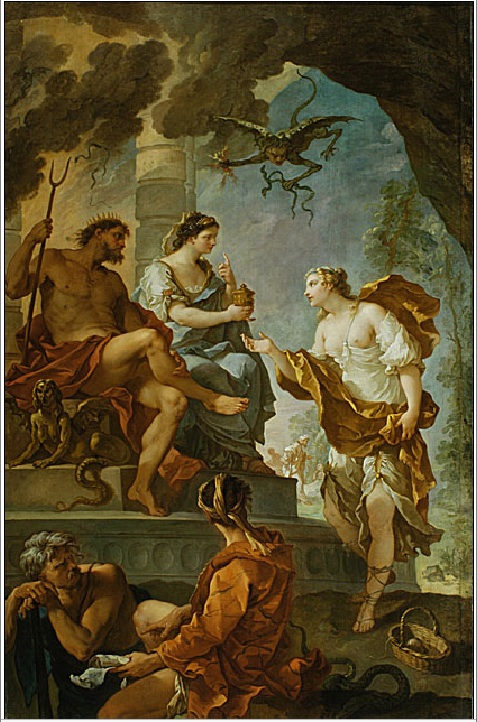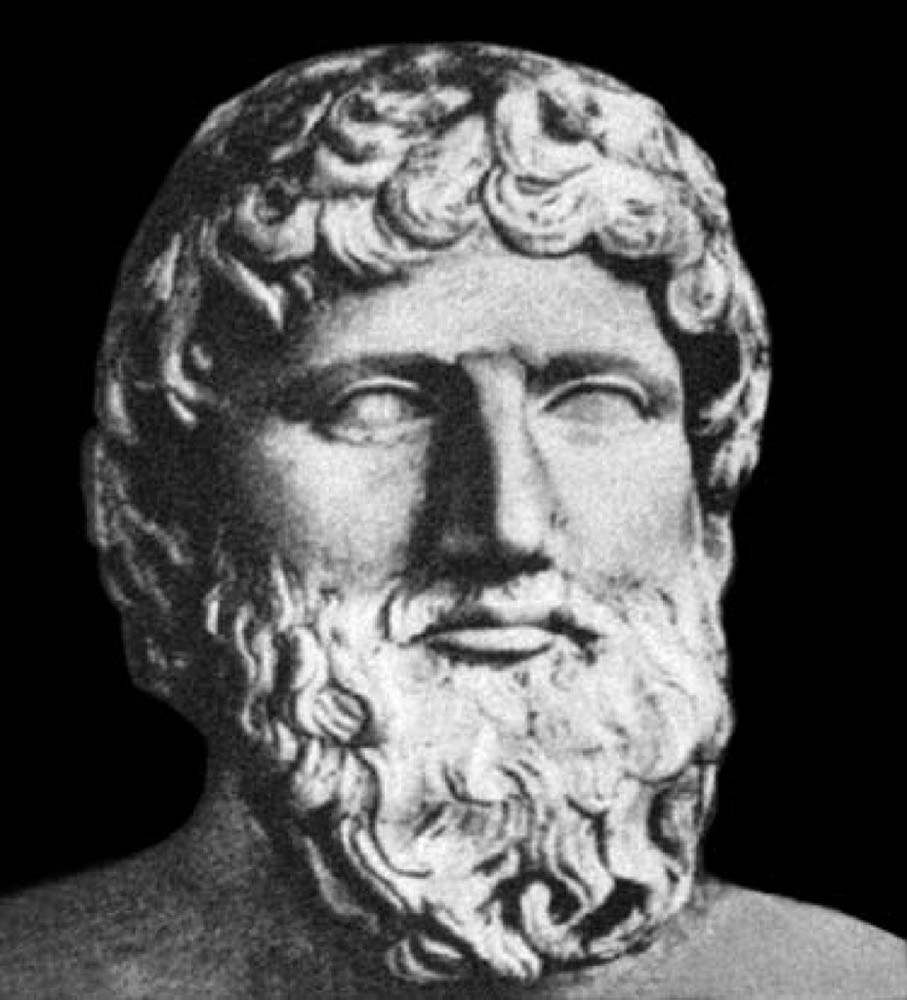Phaedo – Plato Dialogue
“It is true about our souls and their dwellings, given that the soul evidently is immortal, this, I think, is fitting and worth risking, for one who believes that it is so – for a noble risk it is.”
The final chapter in the myth of the afterlife in the Phaedo is the rebirth of the soul into another life, completing the cycle – since the process of dying is followed by the process of coming to birth again. Socrates refers to the idea of reincarnation as an old legend (palaiòs logos) In his discussion of the effects of the mixture of body and soul, Socrates relates that one of the effects of the failure to separate them is rebirth into the forms of animals appropriate to the ruling passions of the former life. The gluttonous become donkeys and the violent become carnivorous beasts, while those who practiced unphilosophic virtue are reincarnated as ants or bees or even as humans again (81e–82b).

Psyche Obtaining the Elixir of Beauty from Proserpine
This process of the soul falling straightaway back into another body is explained thus: “The souls of most of the dead arrive there, and, after they have stayed for certain appointed periods, some longer, some shorter, they are sent forth again into the generation of living things.” The inhabitants of the upper realms live there longer than those of the lower realms and without the pains, but they are only more like the Immortals, not actually immortal themselves. .When they have to fall down, they are forced to fall back again and are assigned to an appropriate status, depending on their nature and according to their deeds.
Olympiodorus argues that in Plato even the souls of those who ascend to the intelligible realm must descend eventually to lower realms (Olympiodorus, 10 § 14). Such speculation may be pressing the details too far, but it preserves the analogy Plato makes between the conduct in life and the conditions of afterlife, as well as his proportions between the realms of air and aither. On the other hand, from a literalist reading, the fates of those disembodied for all time to come and those condemned to an eternity in Tartarus would seem to be the only ones who will never be reborn in bodies. The Neoplatonic interpreters, who used all manner of special pleading to argue that the tormented in Tartarus would not remain there forever, but would be freed after a really long time, e.g., a complete cosmic revolution or Great Year, or that the threat of eternal punishment is a falsehood for the good of the community, to deter people from irremediable crimes. (cp. Damascius I. § 547, II. § 147; Olympiodorus 10 § 14.)
Plato constructs from these mythic elements a vision of the whole world, hierarchically arranged from the lowest pits of Tartarus to the Isles of the Blessed in the upper regions of the cosmos. Each region has conditions appropriate to the nature of the souls sent there after judgment. The majority of souls who go to the realm of Hades are sent by their judges to the lake of Acheron, since they are neither so bad as to deserve punishment nor sufficiently purified to ascend to higher realms. “And those who have lived indifferently journey to Acheron, embark upon certain vessels provided for them, and on these they reach the lake; there they dwell and are purified, paying the penalty for their wrongdoings, and are absolved, if any has committed any wrong, and they secure reward for their good deeds, each according to his lot.” These souls receive recompense for every good and evil deed in a process of purification. Those who have committed great crimes must suffer punishment in Tartarus, where the flow of waters buffets them about for at least a full year. In Plato’s Tartarus, the more solid element of water replaces the great winds that buffet the one who falls into Tartarus in Hesiod, although the period of time remains the same, a year. Damascius, attributes special significance to each of these opposing rivers. “The power of delimitation is symbolized by the Oceanus, that of purification by the Acheron, that of chastisement by heat by the Pyriphlegethon, that of chastisement through cold by the Cocytus.”
The fate of the punished soul in Tartarus is thus like the lot of an unphilosophic person who distrusts all arguments and relies only on his senses. The experience of the soul in Tartarus is thus equivalent to the mortal who lives entirely through his senses, perceiving only the endless variation of the material world and mistrusting the reasonings and the soul which alone can lead it to the Truth.
Those who have committed crimes but may yet be reformed are cast out of Tartarus after a year’s cycle and into one of the rivers that flows past the Acherusian Lake, into Pyriphlegethon or Cocytus. Socrates gives some examples of such criminals, those who in a momentary fit of passion have killed someone or injured a parent, and he assigns the killers to Cocytus and the parent-beaters to Pyriphlegethon. These criminals remain in a cycle of punishment, floating along the river system back into Tartarus and then back out again the next year, until they can convince their victims to forgive them, at which point they are admitted into the Acherusian Lake, to undertake the same kind of purification allotted to those without such outstanding criminal records (parallel may be found also in Attic law, where the killer may be exempt from prosecution -and the relatives freed from the obligation of prosecution- if the killer is forgiven by the victim before he expires).
A few fortunate souls do not need a sojourn of purification on the Acherusian Lake, but the result of their judgment is an ascent to the higher realms. Only souls made pure by philosophy, that is, only those that have entirely freed themselves from the weightiness of materiality and its relative illusions, are able to rise to the heights of Olympos- as though released from a prison. Plato thus explains both the motifs of philosophy as a release from prison and as a separation from the body and the description of the results of a good judgment of the soul. These souls live on the surface of the true earth, where the air serves as water and aither as air. “Some dwelling inland, some living by the air, as we live by the sea, and some on islands surrounded by the air and lying close to the mainland.” Plato’s islands in the air are his version of the traditional Blessed Isles, and they share many of the same features found in the tradition: like the men of Hesiod’s golden race, they enjoy a beneficial climate and blissful existence that includes contact with the Gods. The souls purified by the philosophical pursuit of the unchanging and ideal Forms in this life go to an afterlife in a realm less subject to change, the same inhabited by the Gods. “Moreover, they have groves and temples of Gods, in which Gods are truly dwellers, and utterances and prophecies, and direct awareness of the Gods; and communion of that kind they experience face to face.”
This realm, like the realm above the heavens in the Phaedrus, is so far beyond mortal experience that “of that place beyond the heavens none of our earthly poets has sung, and none shall sing worthily.”

